ACKNOWLEDGEMENTS
Our utmost gratitude to:
Prof Tan Poh Lin
Deputy Secretary Aaron Maniam
Mr. Chua Jun Yan
Dr. Joanne Yoong
Research for Impact
for working closely with us to make our programmes possible.
adapted from impacT’s Semestral Report (AY 22/23 Semester 1)
MESSAGE FROM EDWARD
Hello friends!
As the ‘captain’ and last member of the original ‘sampan’ team of impacT, I would like to take this little space to pen a personal message for some very special people.
Since our founding in early 2021, this little ‘sampan’ has come a really long way. In about 2 years, we scaled the organisation to over 40 full-time members, 300+ regular subscribers, and a very robust external network of leaders in Singapore. The range of people, resources, and programmes our members can now access is immense. We started the organisation because we did not fit in and felt that we could do better for the community. I want to sincerely thank the seniors who have given their heart and hard work, not for themselves, but because they simply wanted to create that positive platform for others they never had. I am so proud and glad I got to journey with you all. I have been a demanding and ambitious ‘captain’ but thank you for diving in together –the journey was truly worth it because of the company.
impacT was not only a labour of love by our members, but also the passing of a generational torch. So many leaders across the public, private, and people sectors have generously given us their time, advice, and resources because we were serious about stepping up to make a difference. From having closed door receptions with Minister Desmond Lee on the MND rooftop, to running leadership case studies with (former) Deputy Secretary Aaron Maniam, to running a hackathon on youth mental health with CEO Dr Joanne Yoong of Research for Impact – in every instance we stood on the shoulders of giants and peered over what would otherwise be insurmountable walls. Internally, our NUS faculty and staff advisors gave us not just green light, but their tireless advice, expertise, and support. Thank you so much Dr Tan Poh Lin, Dr Joon Chuah, and Dr Joel Chow for believing in a motley crew of undergraduates who dreamt of a better NUS and world.
Last and certainly not least, to the junior team and the ones who come after. I wish you will have even more exciting adventures in impacT, and build camaraderie with your ‘sampan’ mates too. There will be icebergs to swerve around, and treasures to discover, but never lose true north. Keep the faith that each of us in our own ways, are part of that Community of Curious, Critical, and Constructive Changemakers we aspire to be. I am beyond excited to see what new waters you sail into. I would like to leave you with a quote I think about often: “For the young, let me tell you the sky has turned brighter. There's a glorious rainbow that beckons those with the spirit of adventure. And there are rich findings at the end of the rainbow. To the young and to the not-so-old, I say, look at that horizon, follow that rainbow, go ride it.” –
Lee Kuan Yew.Dare to dream and to make a difference! Keep on rowing, impacT!
Edward Outgoing President & CofounderimpacT turns two this year! And with it, old and new faces galore. With the end of the academic year, we bid farewell to some of our oldest faces: our founding President Edward and Vice President Evelyn. I thank them for the stewardship they have provided the club in its most difficult, formative stages. I am reminded of the old thought experiment The Ship of Theseus (or in our case the Sampan of Theseus), where a ship gets replaced plank by plank, nail by nail, until no original component is left of the old vessel. Is it then the same ship?
In impacT’s case, I argue that it indeed is. We still believe that every member who comes for our events and joins our subteam has the potential to drive positive, productive change in the world. What we aim to do remains the same as well. Taken together, our suite of curricula and sub-division activities serve as a launchpad to inculcate members with the necessary competencies, networks, and domain-specific skills to start their journeys in taking on the world of social impact.
The academic year saw continued engagements with notable academic, public sector luminaries, and fellow young go-getters. This academic year also saw the club find its voicewe launched our first issue of Lacuna entitled Tides and Strides, and a special infographic series by the Publicity team.
This could not have been done without our Staff Advisor Dr Tan Poh Lin, Office of Student Affairs liaison Mr Hyzue, and external advisors Mr Chua Jun Yao and Dr Joanne Yoong, whose continued and enthusiastic support of impacT’s programmes and members has paved the way for our continued success. I would also like to thank each and every one of impacT’s guests, who have volunteered their weekends for our curiosity and enthusiasm.
And the sampan continues to renew itself. The academic year also saw the beginnings of an experimental Project X, where efforts to audit the University’s environmental progress through a framework called the Science Based Targets Initiative is slowly making headway. Other initiatives, like the ongoing Makan with Mentors pilot, will serve to lay the foundations of how the club seeks to grow and further benefit its members.
What will our growing Sampan of Theseus look like in 2024? impacT has always looked ahead to the future, but now I would like us to look outwards as well, testing and proving the skills and capacities we have built up over the years to meaningfully engage the community that has provided us with so much.
Onwards and upwards!
Who we are
Our People
An organisation founded in Tembusu College, impacT is currently based in the heart of NUS University Town, where student life is dynamic and enterprising. As a student-run organisation kickstarted by a group of like-minded friends who sought to learn more and do more to make an impact, impacT hopes to provide the wider NUS student population access to the resources and opportunities available through our programmes, networks and community
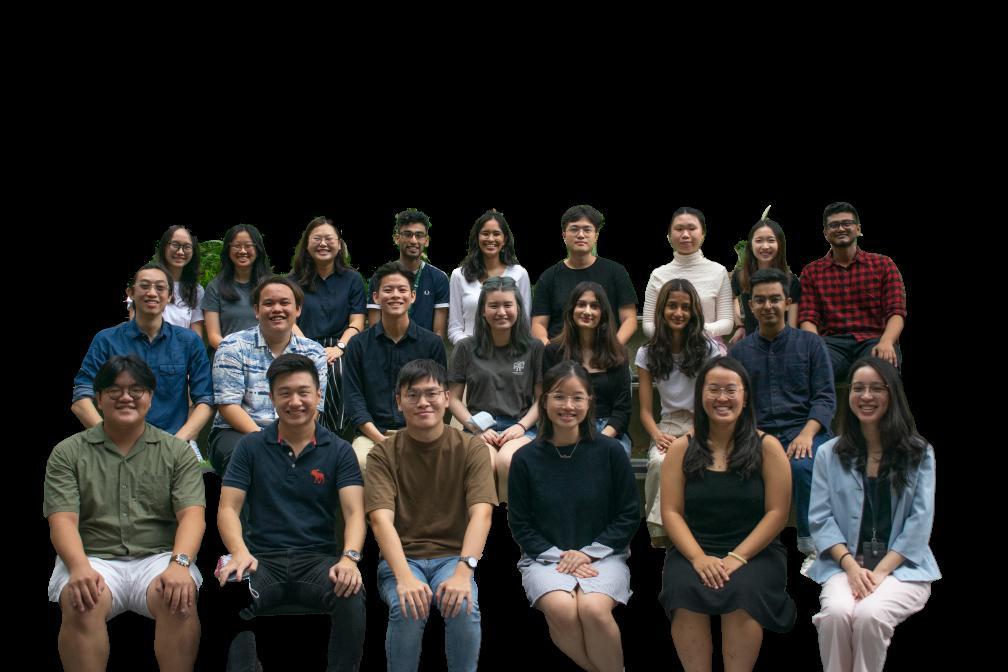
Our Mission
To nurture the next generation of leaders in public policy and social impact.
To achieve such a mission, we aim to provide targeted workshops, career and internship support, relevant project experience, internal development objectives and more.
Our Vision
To become the preeminent student-run organization for youths who aspire to create public and social impact.
We believe that the world deserves and needs more leaders who have strong ethical, intellectual, and practical foundations to tackle ever more urgent and complex problems. We need to inspire and empower some of them.
Our Values
impacT strives to create a Community of Curious, Critical, and Constructive Changemakers
Curiosity
Are you eager to learn? We want people who have a desire to learn, a thirst for knowledge, and the humility to know that learning never stops.
Critical
Do you see beyond the superficial? We want people who can think deeply about issues, understand different perspectives, and the integrity to speak truth to power.
Constructive
Do you walk the talk? We want people who will not only learn and criticise, but also who can apply their knowledge to improve the things they have criticised, people who take action to make the world a better place.
In one year, we have achieved...
~500 students engaged so far
232 followers on LinkedIn
44 team members
2
student journal publications
9 Workshops & Dialogues
12 guest speakers
3 Internal Workshops
Projects AY 22/23
Internal Programmes


Semester 1
Since our founding with a small motley crew, impacT has grown significantly in our journey to be the premier organisation for youths interested in policy and social impact. With over 40 full-time members today, over 300 interested regular subscribers, and strong external networks we have grown to be a differentiated and sizeable presence on campus and in Singapore.
Semester 1 was busy and about setting the stage for impacT 2.0, ensuring that we create both space for continued innovation while balancing stability and structure as we entered leadership renewal. First, we organised the regular sessions with the Public, Private, and People sectors that past participants of impacT familiar with. I had the privilege to begin the semester by conducting a workshop with a primer session on systems thinking and Bardach’s 8-fold path of policy analysis, perspectives that would help frame our members’ learning. Following that, we were grateful to have had Chief Executive Tan Kok Yam of SkillsFuture, Deputy Secretary Cindy Khoo of Strategy Group, Prime Minister’s Office, and members of the civil society group The Birthday Collective grace our events and provide us with perspective into various emerging issues for Singapore. Our curriculum team remains our core strength, and the younger members learnt much from the guests and their seniors as they prepared for PLOT 2.0 in Semester 2.
Edward Former President & CofounderTaster Session
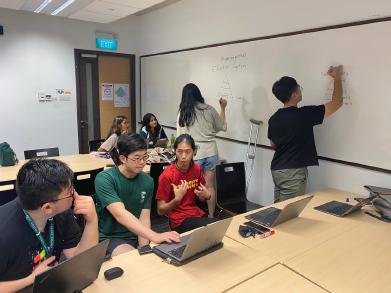
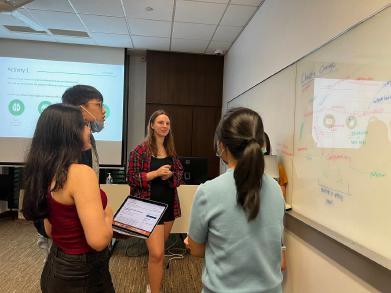
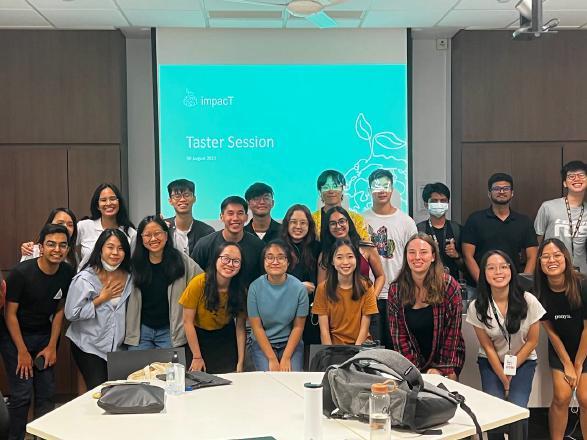
We kickstarted the semester with a broad overview of systems thinking, a key tool needed to dissect the complex problems of today, where the underlying causes are much more difficult to detect and solve. Systems thinking is paired with rudimentary knowledge about the Bardach Eightfold Path, a quintessential framework used by all policymakers. Within the session, participants were made to apply these frameworks by taking an issue of choice and dissecting it. As participants are exposed to both skillsets, our hope is that they can apply such critical approaches when engaging with guests during forums.
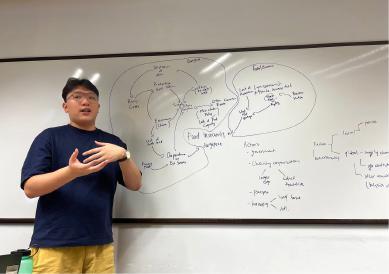
 Students discuss and present different issues like Youth Mental Health in Singapore or Food Security, applying the frameworks learned.
Students discuss and present different issues like Youth Mental Health in Singapore or Food Security, applying the frameworks learned.
Fireside Chat with DS Cindy
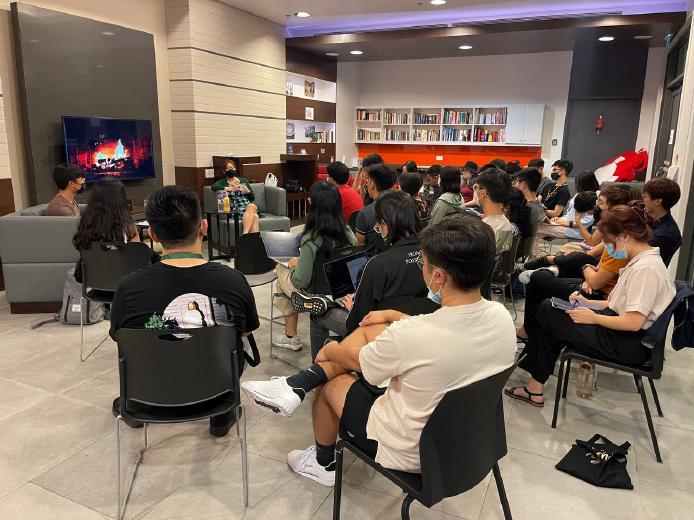
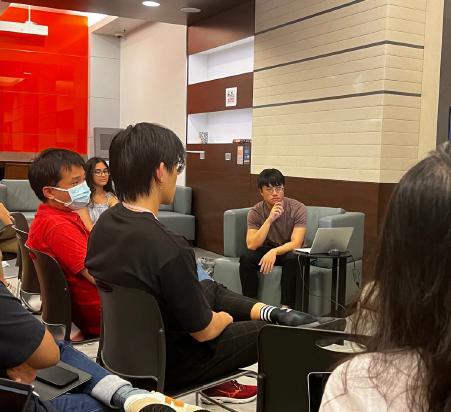
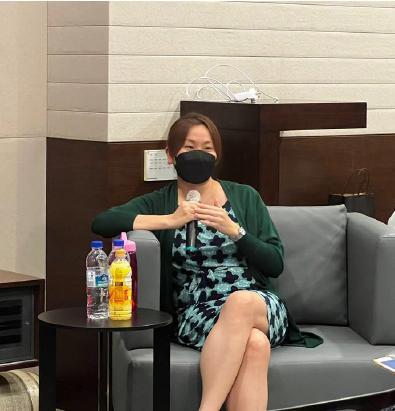
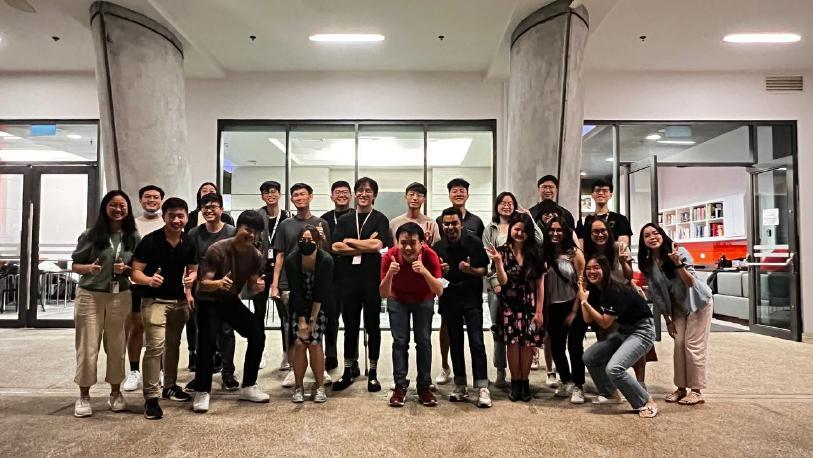
Policy is Strategy, but what is Strategy? That is the question that we sought to cover at the start of the semester. Through interaction with DS Cindy and her perspectives, participants were exposed to decision-making frameworks and heuristics she uses to balance operational, developmental and strategic goals in her decisions. Equipped with basic knowledge of policy analysis and systems thinking, participants elicited nuggets of wisdom from her experience.
Beyond balancing cost-and-benefit and carefully accounting for trade-offs, DS Cindy shared about the importance of flexibility. Emerging medium and longterm issues critical to Singapore’s continuity and success are increasingly dependent on collaborations between what was previously thought of as separate sectors within government; present structures must continue to evolve to maximise effectiveness.
During the session, DS Cindy also shared her insights on how a strategy for human capital development is essential for successful policy making. In seeking out different perspectives, new value that would otherwise not be there is created. Conflicting perspectives have a better chance of reconciliation when the differences in underlying assumptions are recognised; achieving consensus is as important for policy direction as the diversification of perspective.
Deputy Secretary Cindy Khoo from Strategy Group, at the Prime Minister’s Office with students from impacTFireside Chat with Mr Tan Kok Yam
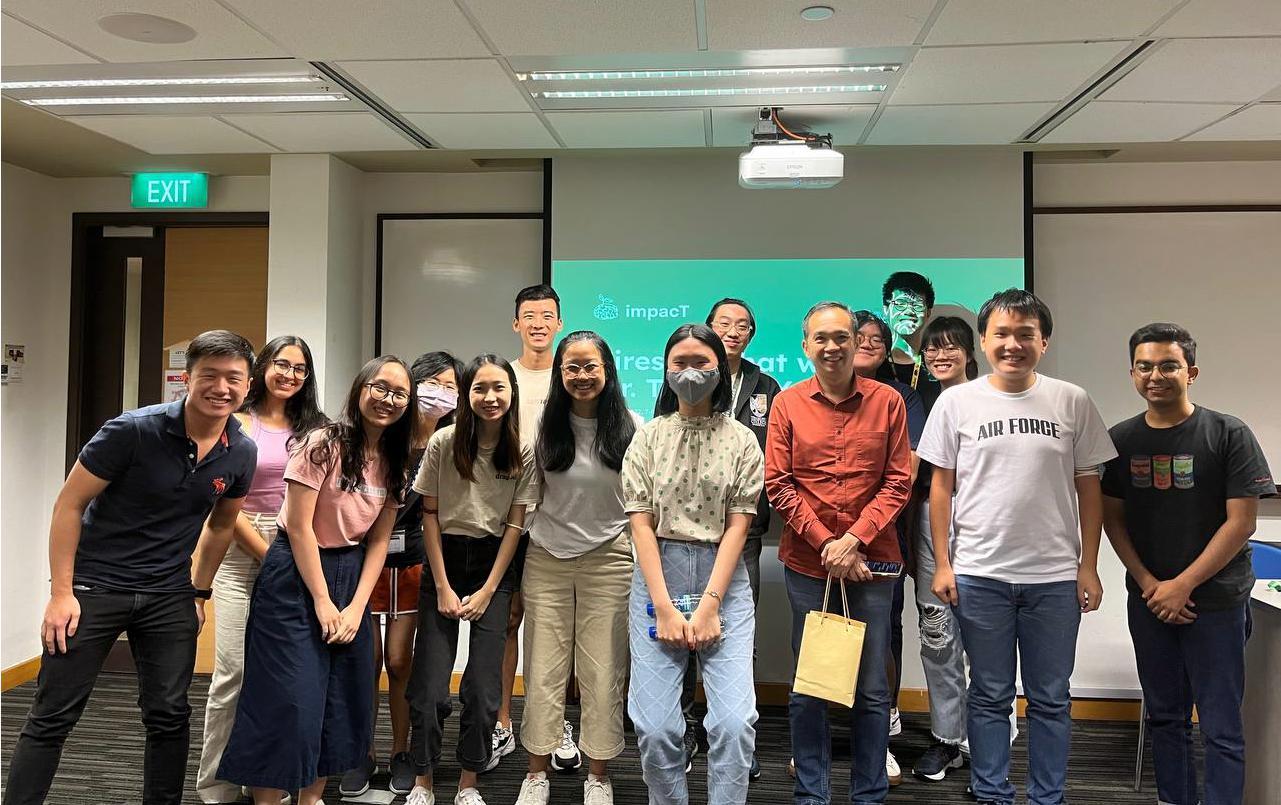
How has digitalisation changed the process of policymaking? During the Fireside Chat with Mr. Tan Kok Yam, participants were able to learn how policymaking in the public and private sectors changes according to the rising trend of digitalisation. As the current CEO of SkillsFuture Singapore, Mr. Tan was able to impart invaluable knowledge to the participants with his experience.
Focusing on how digitalisation matures over the years, Mr Tan emphasises the importance of three factors that contribute to this change: the inclusivity of various disciplines, hyphenation, and the development of SkillsFuture. One pertinent concern that was raised during the fireside chat was how we tackle the issue of groups being left behind amid this rapid digitalisation phase. While there are many ways we can tackle this problem, there is one central aspect that must remain - that all policymaking processes must be conscious of universal designs, to cater to everyone.
Mr. Tan Kok Yam, Chief Executive at Skills Future with students from impacTBoth the public and private sectors play a large role in digitalisation. Using the case studies of monetary transactions and data protection, the public sector is crucial in building a strong base for the new waves of digitalisation. There is a need to put things in place so that we know and are aware of where our data is going. Additionally, it is important to have an environment of trust. Furthermore, when the public sector functions as one singular digital identity, it serves to standardise and build the digital commons among companies. Resultantly, this will allow for other forms of innovation in various companies such as the different e-payment methods.
During the session, we also covered how we are able to better the process of our policymaking. Mr. Tan stressed the significance of learning from other countries, and for leaders to be constantly up to date with the data that is available and how to make them user-friendly. There is also a need to ensure that people in Singapore constantly upskill themselves so they will be able to keep up with local and global trends. Another recurring point was to seek different perspectives from different professionals across various industries, to make sure that all potential shortcomings and problems of a policy are not being overlooked.
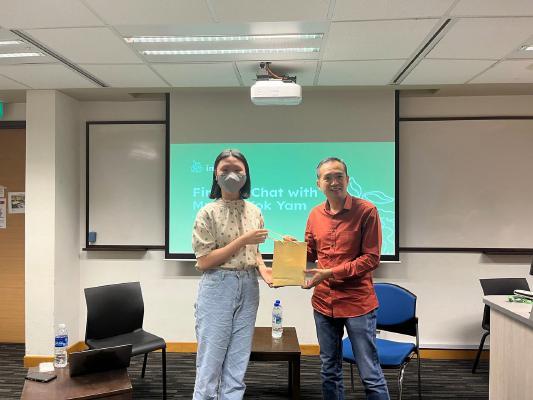
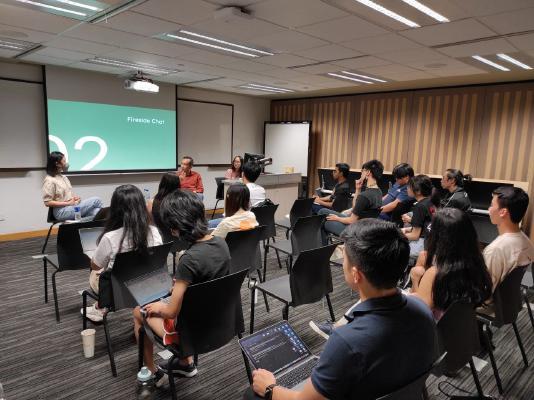 Edward facilitates the Fireside Chat with Deputy Secretary Cindy Khoo, asking her questions on policy making and the frameworks applied
Edward facilitates the Fireside Chat with Deputy Secretary Cindy Khoo, asking her questions on policy making and the frameworks applied
The Birthday Collective Forum
After spending 3 sessions thinking about policymaking, participants were exposed to evaluation through a topical forum conducted with the editors of The Birthday Collective. With the firm belief that society should be shaped by diverse viewpoints and not just the elite, The Birthday Collective creates a platform for nascent voices who aim to make change in Singapore. Its publication, the annual Birthday Book, is its choice of medium; it sparks conversations, empowering youths to make positive change in society.
As an organisation, The Birthday Collective helps plug gaps in the Singapore narrative, which people misconstrue as being entirely shaped by top-down action. During the semester, participants were exposed to the perspectives of policymakers within government; with this event, we hoped to impress upon participants that the Singapore narrative was shaped by multiple stakeholders, including those in the private and people’s sector.
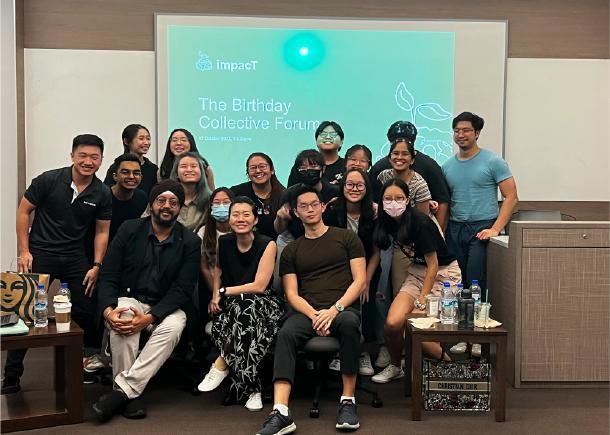
Through honest conversations with the editors, participants were exposed to realistic constraints The Birthday Collective faces as an enterprise for good. One of the editors for the Birthday Book expressed how the organisation has to simultaneously balance concerns for survival while ensuring they publish the voices of the unheard plurality.
Participants also got the chance to discuss how an enterprise for good assesses success. Unlike conventionally profit-driven firms that focus on market growth, the Birthday Collective aligns its purpose with its measurements of success by prioritising social impact.
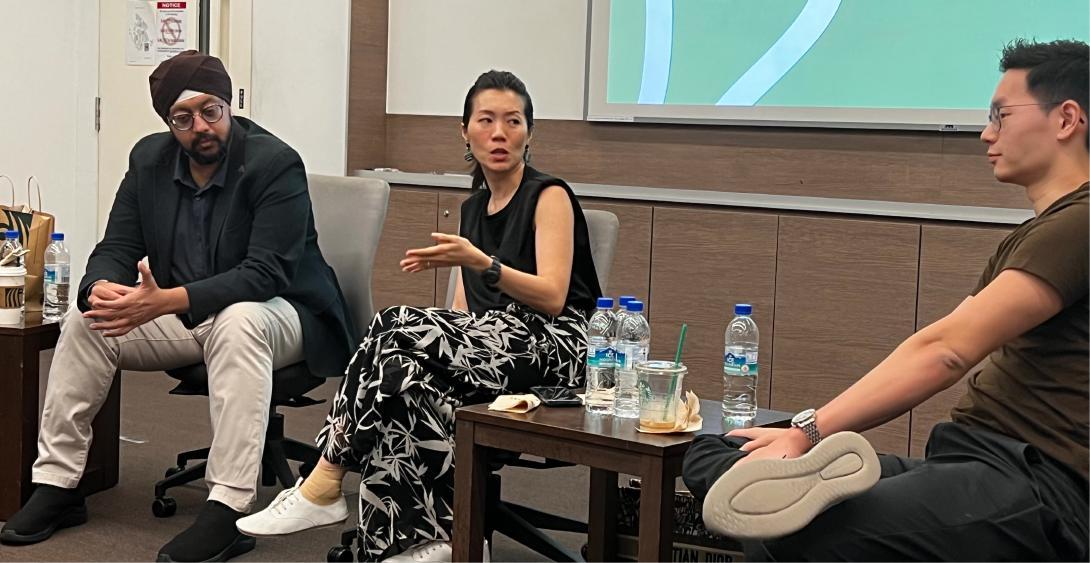 Mr. Tan Kuan Hian, Mr. Malminderjit Singh and Ms. Cherie Tseng from The Birthday Collective with students from impacT
Mr. Tan Kuan Hian, Mr. Malminderjit Singh and Ms. Cherie Tseng from The Birthday Collective with students from impacT
Semester 2
Singapore’s Introduction to
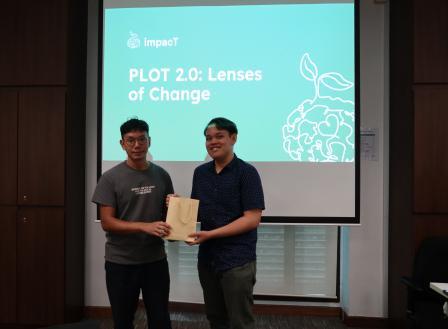
Social Compact: Moral Philosophy
In our very first workshop, participants embarked on an intellectual journey, facilitated by Professor Joel Chow, exploring the intricate world of moral philosophy and decision-making.
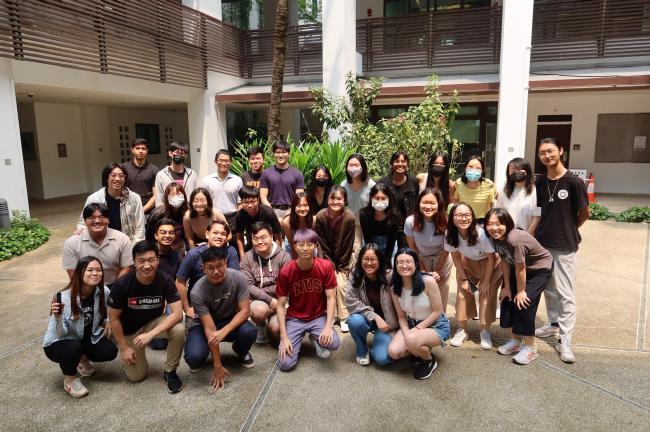
The focus was on utilitarianism, unravelling its foundational principles, including the pursuit of the greatest good and the complex relationship between personal ties and impartiality. This provided participants a lens through which they not only examined the intricate threads that weave our societal fabric but also an opportunity to gain a unique perspective in evaluating and enhancing our social agreements. The workshop shed light on the challenges of quantifying and comparing well-being, with a spotlight on the decreasing marginal utility and the intricacies of cost-benefit analysis. The workshop's discourse seamlessly extended beyond the philosophical realm, providing participants with a practical tool with which they could analyse and refine their perceptions of society’s social compact. By offering participants a structured approach to assess collective benefits and costs, they were equipped with a tangible lens to scrutinise existing agreements, identify areas for improvement, and contribute to a more just and equitable societal framework. As discussions unfolded, it became evident that the utilitarian lens not only enriched one’s understanding of moral decision-making but also provided a means to critically evaluate and evolve the foundation of our shared social contract.
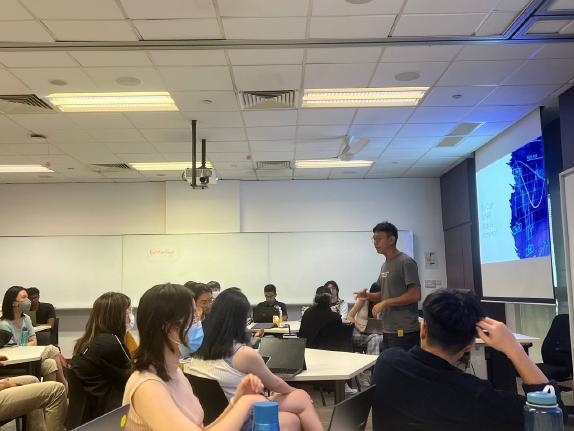
Futures Thinking in Policy Making
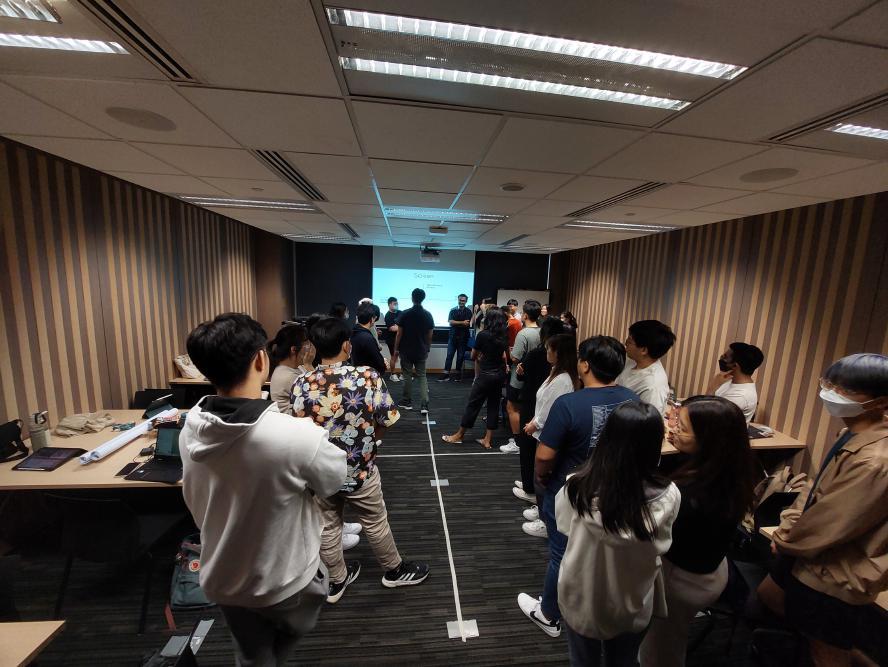
In an increasingly complex and uncertain world, how do we start thinking about the future? This was the captivating question that ignited the intellectual journey our participants embarked upon during our second session - "Futures Thinking in Policy Making." As participants gathered with a shared curiosity to explore the intricacies of strategic foresight, they were immersed in a series of thought-provoking activities designed to illuminate the art of shaping the future.
Facilitated by research associates, Eddie Choo and Farah Sanwari from the Lee Kuan Yew School of Public Policy (LKYSPP), participants were provided with a compelling foundation on how to dismantle conventional predictions with an emphasis on the significance of challenging assumptions through ‘The Futures Cone’. This powerful tool unveiled during the workshop, served as a guiding light in the realm of future possibilities. A departure from traditional predictions, the Futures Cone encouraged participants to challenge assumptions that may seem highly probable, yet are not guaranteed. It offered a spectrum of exploration, ranging from the audaciously "Preposterous" to the feasible "Possible," the rational "Plausible," the familiar "Projected" Future, and the likely "Probable." Through this unique lens, our participants learned to question prevailing assumptions and embrace a broader scope of perspectives.
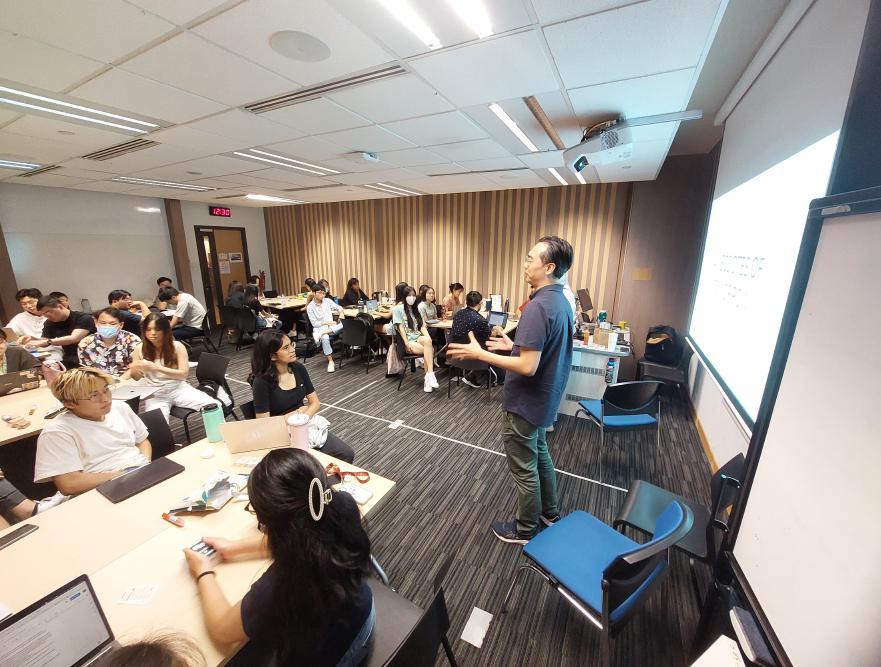 Ms Farah H. Sanwari and Mr Eddy Choo from Lee Kuan Yew School of Public Policy Executive Education with students from impacT
Ms Farah H. Sanwari and Mr Eddy Choo from Lee Kuan Yew School of Public Policy Executive Education with students from impacT
Throughout the session, a kaleidoscope of discussions illuminated the wider scope of Futures Thinking to harness participants’ abilities to drive organisational change and inspire new ideas by offering them opportunities to map the present, unravel complexities, create new narratives, and meticulously develop and test strategic plans through scenario-planning activities. Additionally, apart from being enlightened on the 5Step Futures Thinking process - Framing, Scanning, Futuring, Visioning & Designing, participants were subsequently equipped with a toolkit to drive change and foster innovation.
Guided by this 5-Step Futures Thinking process, attendees engaged in scenario-planning activities that seamlessly integrated specialised tools for each stage. During the "Mapping the present, anticipating the future" phase, tools like Narrative Inquiry and Horizon Scanning enriched research skills, enabling the identification of evolving trends and signals of change. "Unpacking Complexities" delved into global trends using Causal Layered Analysis and STEEP Analysis to dissect intricate challenges. "Creating New Narratives" introduced tools such as 3 Horizons, Visioning, and Scenarios, empowering attendees to craft imaginative stories of transformation. This activity culminated in "Developing & Testing the Strategic Plan," where Backcasting and Roadmapping facilitated the alignment of strategies with future visions. In all, these immersive experiences left participants poised to navigate uncertainty, anticipate trends, and strategically mould policies for a resilient future, emphasising the transformative power of Futures Thinking in proactive policymaking.
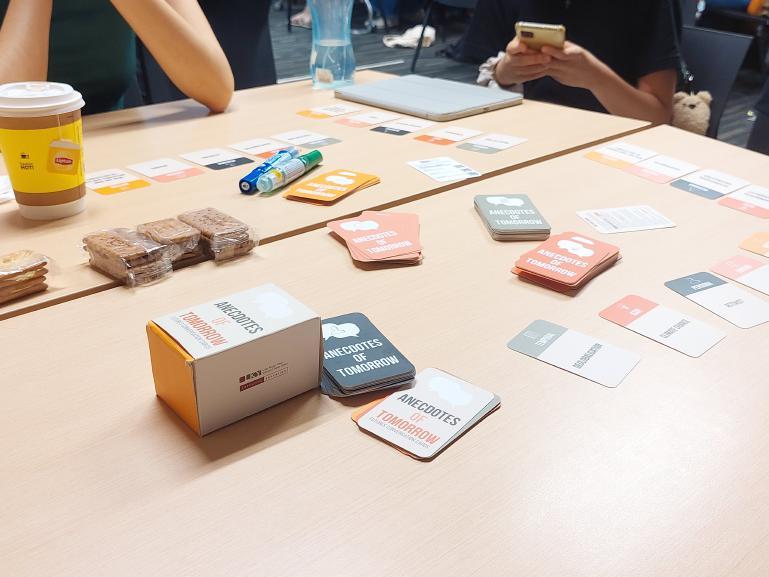 Students from impacT participating in the Anecdotes of Tomorrow activity
Students from impacT participating in the Anecdotes of Tomorrow activity
Behavioural Insights
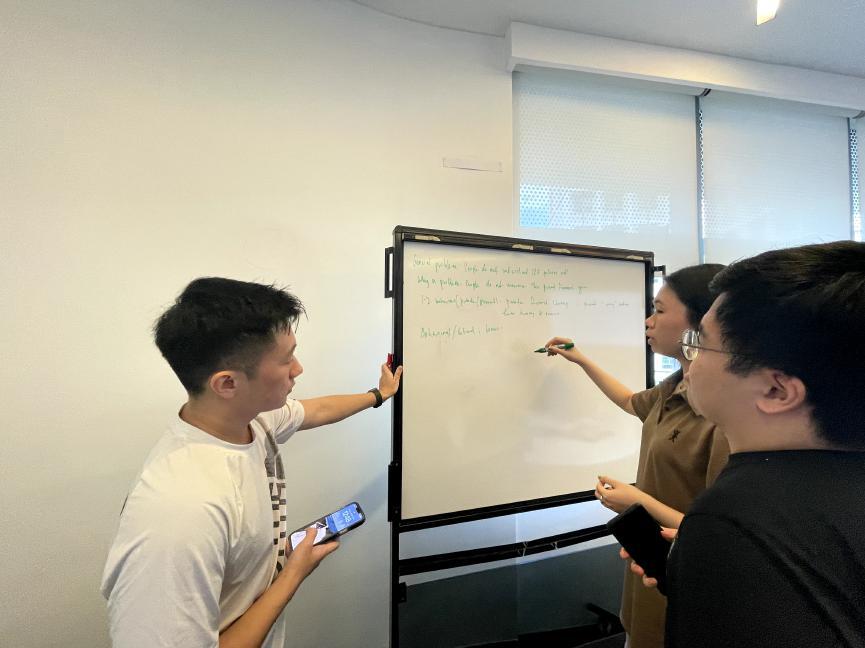
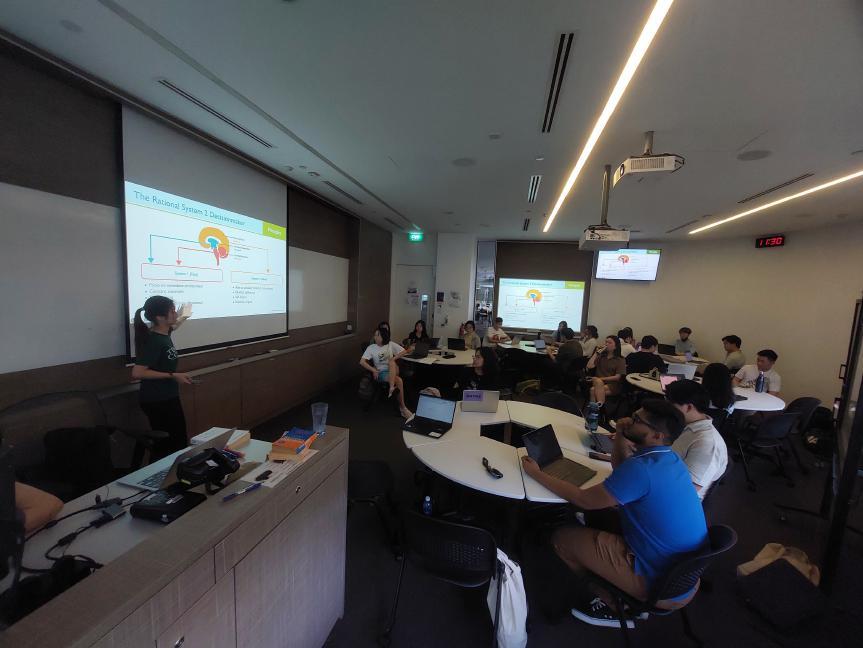
Delving into the intricacies of policymaking, our third session - "Behavioral Insights in Policymaking" workshop exposed participants to the nuances of human decision-making processes. In a landscape where policymakers wield change by influencing behaviours, this workshop aimed to unravel the mechanics behind these dynamics, by delving into how behaviours and responses are attributed to two distinct modes of thinking—System 1 and System 2— shedding light on the profound ways these systems inherently influence our decision-making.
Participants gained insight into the interplay between these two cognitive systems, dissecting biases that emerge from each. This exploration facilitated a comprehensive understanding of their impact on preferences, beliefs, and the very fabric of the decision-making process. The workshop's immersive experience began by delving into a spectrum of biases, from Time Inconsistency and Present Bias to Mental Accounting and Groupthink. Navigating through the intricate facets of decision-making, participants unveiled the profound implications of fundamental attribution errors, the Dunning-Kruger effect, availability bias, and more.
Shimin leading students from impacT on a sharing about theories and behavioural insightsArmed with a deeper comprehension of how behaviours are shaped by the interplay of System 1 and System 2 thinking, participants were then primed to harness this knowledge and apply it through the crafting of impactful nudges in a series of guided scenario activities. Through these activities, attendees vividly grasped the tangible effects of nudges and behavioural insights on policy making. From simplifying choices through opt-out mechanisms to curating attractive options and leveraging social influences, the pragmatic application of nudges came to life. In all, the core of the workshop revolved around the creation of nudge-based policies, exemplifying the seamless integration of these insights into decision-making frameworks. From this workshop, participants gained a heightened awareness of human biases and a strategic grasp of nudges to tailor policies that harmonise with individual and collective behaviours. This comprehensive exploration underscored the transformative potential of behavioural insights and well-designed nudges, offering an innovative avenue for policy formulation that could potentially yield enduring and impactful outcomes.
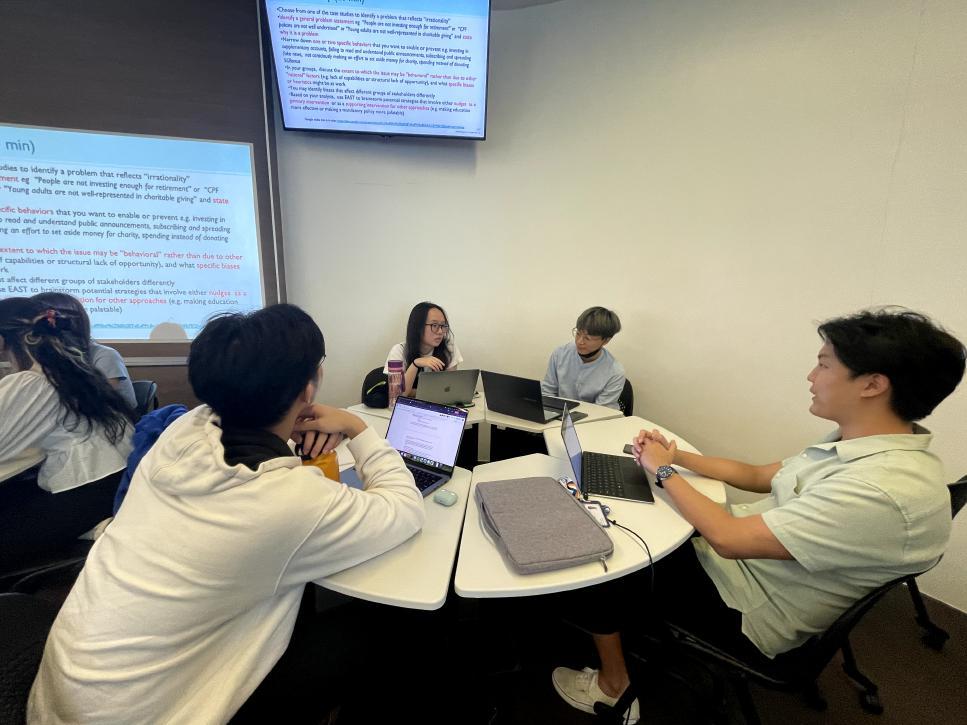
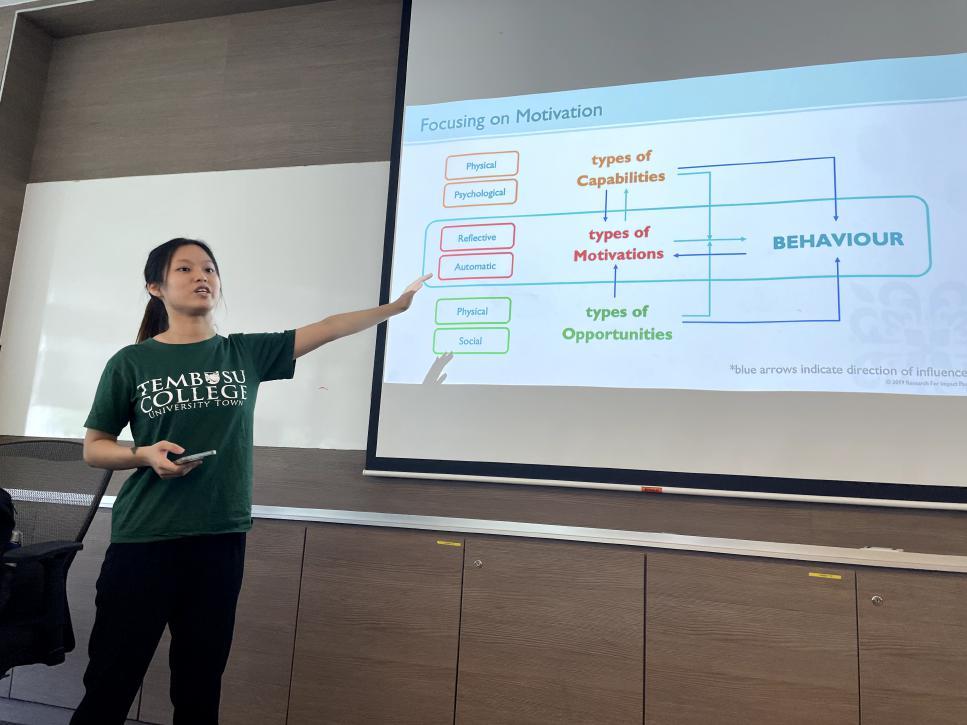 Students discuss and present different issues, applying the frameworks learned.
Students discuss and present different issues, applying the frameworks learned.
Fireside Chat with Professor Lim Siong Guan
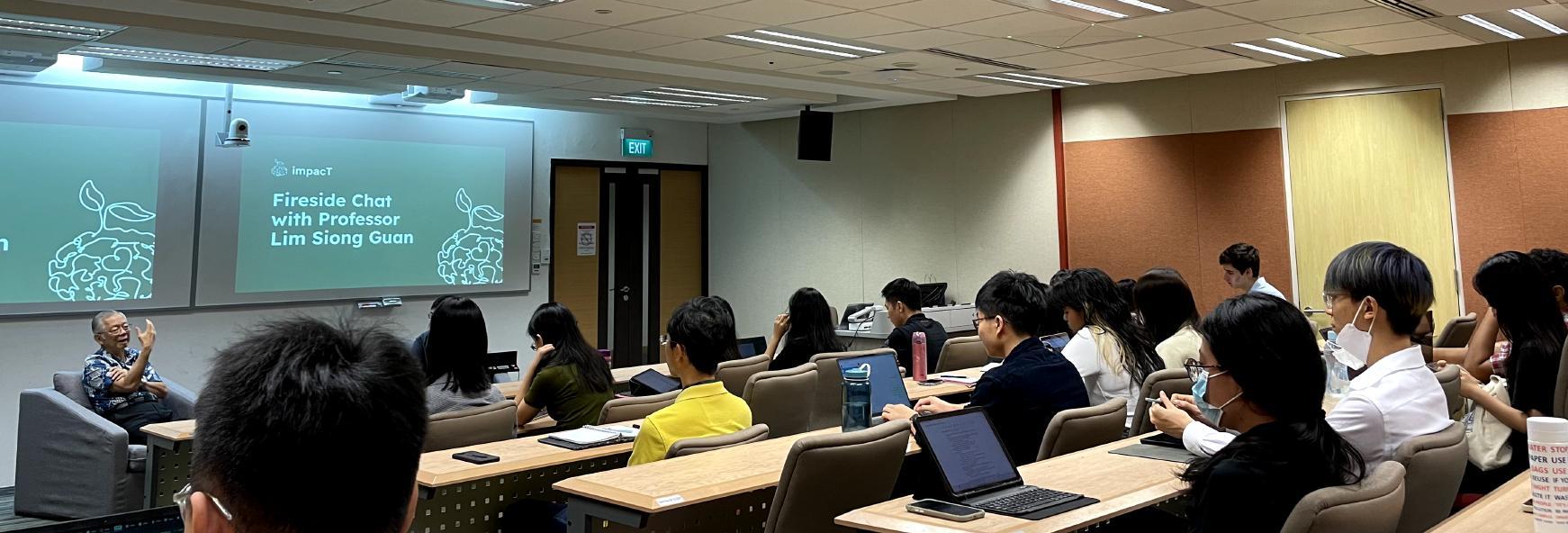
In the fireside chat with Mr Lim Siong Guan, participants learnt about the multifaceted landscape of change, unveiling layers that extend from its fundamental necessity to the nuanced elements that underpin its success. As the discussion unfolded, participants were prompted to ponder a question that often lurks beneath the surface of leadership and progress: How will you adapt when faced with change?
Mr Lim Siong Guan, drawing from his extensive career in public service, provided valuable insights into the intricate tapestry of change. Guided by his wisdom, participants embarked on a journey through the key elements that intricately shape the fabric of change. Clarity emerged as a cornerstone principle, as Mr Lim stressed the importance of fostering a deep understanding of the direction and purpose behind transformational endeavours.
The discussion delved into the vital role of trust, the scaffolding upon which successful change is erected. Legal and social frameworks were dissected, revealing their essential contributions to the stability and sustainability of change initiatives. Security and ideology, often overlooked but inherently influential, were explored as factors that can either catalyse or hinder the process of change. A particularly enlightening segment explored the construction of a clear vision. Mr Lim urged participants to glean insights from history and unearth the genuine needs of the people, emphasising the profound impact of aligning change with the well-being of the populace. Through the discussion, participants were able to view change in an entirely new lens, which revealed that change in and of itself wasn't just a necessity, but rather it exists as an instrument of progress and a vessel for the greater good.
Mr Lim Siong Guan with students from impacTClimate Mitigation & Adaptation Forum
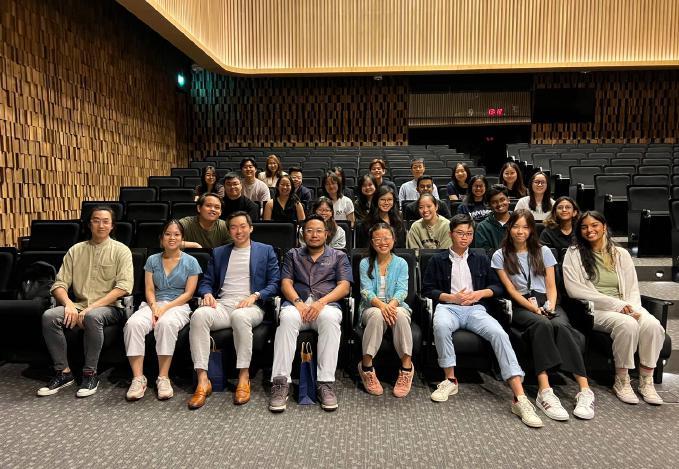
Last but not least, PLOT 2.0 concluded with our Climate Mitigation and Adaptation Forum - marking a pivotal moment in the collective endeavour to generate productive conversations surrounding climate change. With a trisector panel, comprising representatives from the public, private, and civil sectors namely Director Jianwei Heng from NCCS, Mr David Wong from Bain & Company and Ms Terese Teoh, President of the Singapore Youth for Climate Action, the event catalysed a profound discussion on the intricate synergy required for effective change mitigating the effects of climate change while adapting Singapore’s systems with the goal of creating a more sustainable and resilient future.
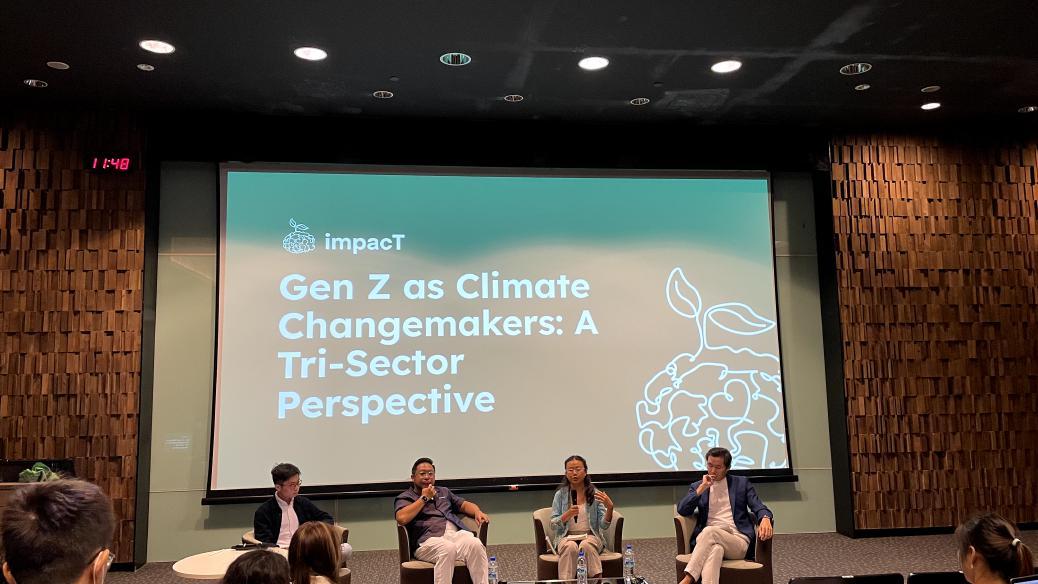
As the panel convened, the topic of focus revolved around the indispensable nexus of sustainability, underscoring the urgency of tri-sector efforts in creating a more resilient and sustainable Singapore. From the public sector's policy shaping to the innovative brilliance of the private sector and the mobilising force of civil society, the triad harmoniously converged to celebrate successes as well as to identify areas for improvement in Singapore’s efforts. The discussion spotlighted the crucial role of the youth, accentuating their intrinsic value in steering the discourse towards solutions. The panel collectively acknowledged the youth's innovative zeal, dynamic thinking, and unwavering commitment as pivotal catalysts for driving sustainable change.
As the forum concluded, participants left with a renewed sense of purpose, unity and actionable steps. The tri-sector dialogue had illuminated the path forward, demonstrating that a sustainable Singapore is hinged on the harmonious collaboration of all sectors and people within Singapore’s society. Bolstered by the vibrancy and conviction of the youths who attended the event, this panel reflected a shared commitment to shape a resilient and ecoconscious future for generations to come.
Mr Jianwei Heng, Mr David Wong and Ms Terese Teoh with students from impacT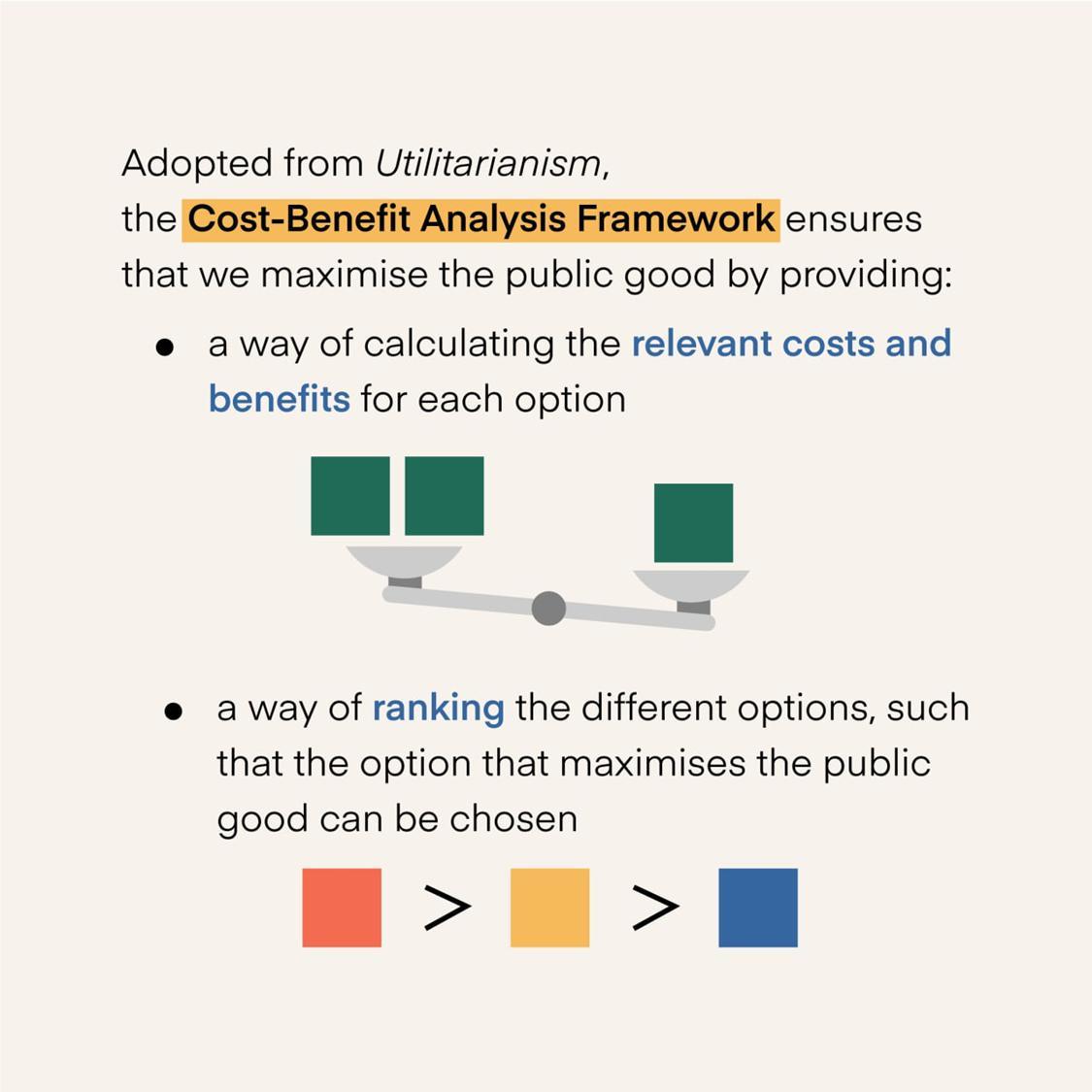
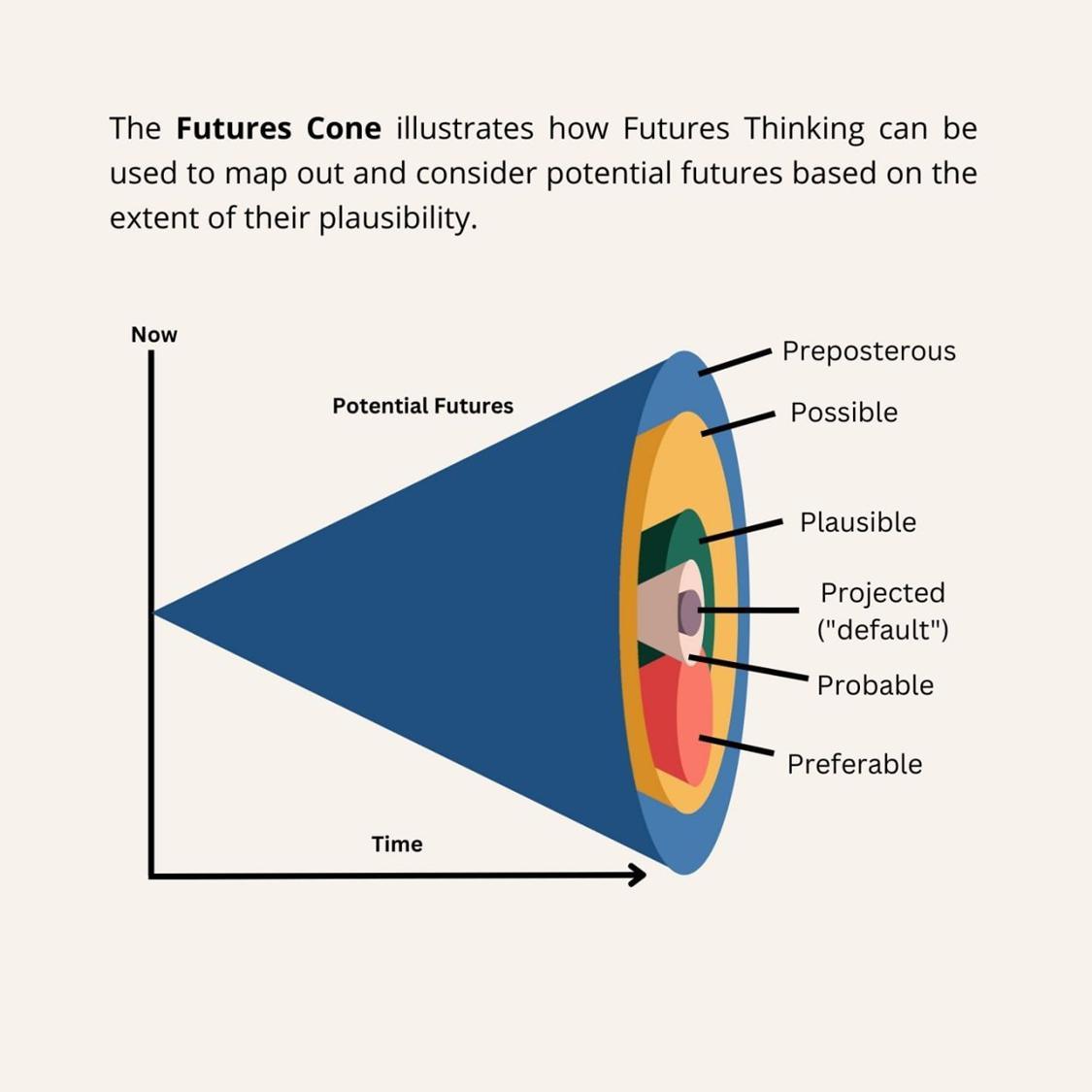
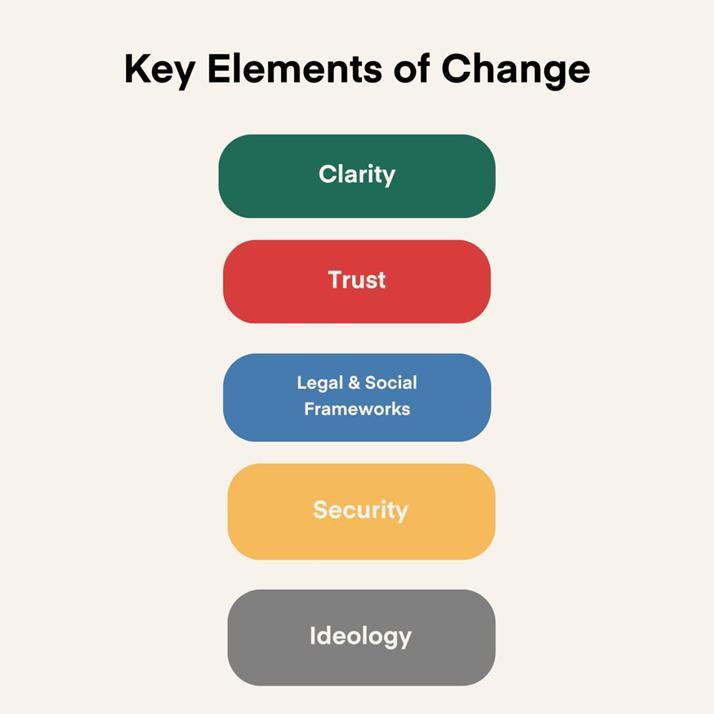
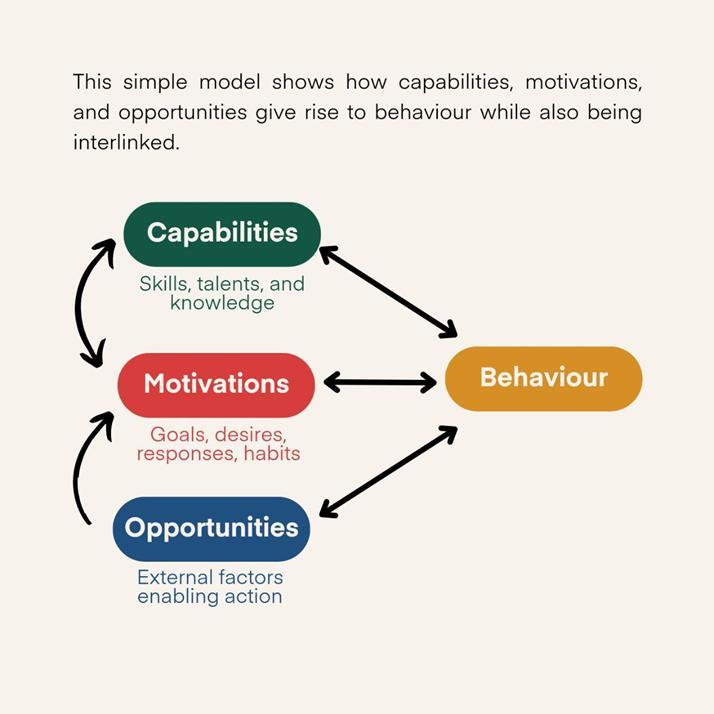
Lacuna
LACUNA: UNDERGRADUATE JOURNAL OF PUBLIC POLICY AND SOCIAL IMPACT, launched in 2021 by impacT, is a platform to publish high-quality undergraduate scholarly works that centre around public policy concerns that have a high social impact. Over the past two years, Lacuna has had two undergraduate Publication Directors who have each helmed teams of between six and seven writer-cumeditors. The inaugural issue was titled ‘Tides and Strides’ while the second iteration is titled ‘Uncertainty: Dealing with an Ambiguous Future.’ These titles encapsulate the flavour of articles that the respective editorial teams conceptualised.
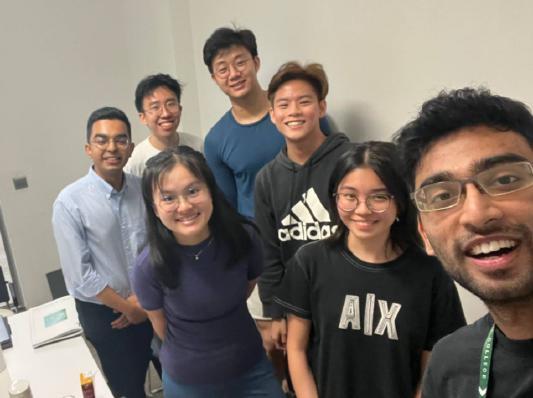
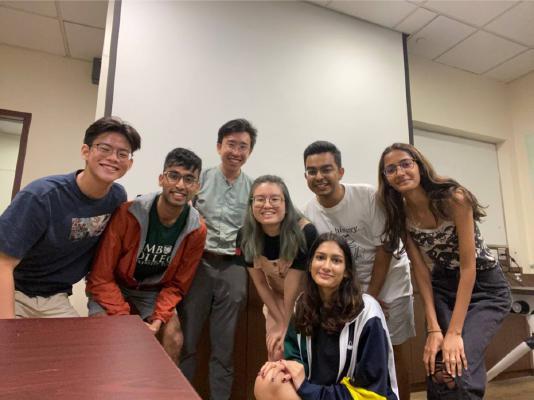
The path to publication has been a unique journey that most would find peculiar. Each issue focuses on a particular theme that the editorial team converges upon. The research, writing, and the peer-editing are all done in-house. Since the editorial teams thus far have had undergraduates from a variety of academic backgrounds, we had the privilege to cut across the academic silos that would normally restrict a publication’s scope. This diversity of perspective is to be valued and continues to stay true to impacT’s mission of being ‘constructive changemakers.’
While our inaugural issue touched upon the ‘ebb and flow’ of public policy and the need to continually find relevant policy solutions to social issues, the second iteration of Lacuna looks toward the future and the importance of dynamic policies to keep up with rapid changes in the local and global context. It is also noteworthy that the design and layout of the publication are unlike any other undergraduate academic journal. Lacuna is not only determined to curate high-quality academic work, but we are also committed to innovating how an undergraduate journal can be produced and designed to be visually appealing to our readers. This has allowed us to showcase the important work that the Publicity team undertakes. The intra-team collaboration within impacT has been fruitful; the editorial team of Lacuna hopes to continue this partnership.
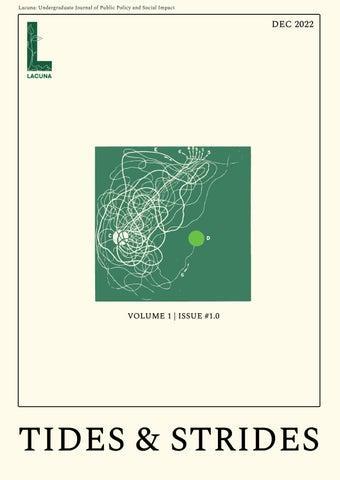 Cover page of Tides & Strides, Lacuna’s first issue
Mr Chua Jun Yuan with the Lacuna team: Sanjeevani, Indraneel, Isha, Sanmay, Evelyn, Isaac, Lauren, Joelia, Joong Hung
Cover page of Tides & Strides, Lacuna’s first issue
Mr Chua Jun Yuan with the Lacuna team: Sanjeevani, Indraneel, Isha, Sanmay, Evelyn, Isaac, Lauren, Joelia, Joong Hung
The path to publishing an undergraduate journal has been challenging. While we are proud of our editorial team, over the last two semesters the process of conceptualizing, researching, writing, and editing has taken a toll on the team. To take on research of any kind above and beyond the workload of an academic semester has proved difficult for most of our writer-cum-editors. As such, the timeline of 13 weeks for ideation to publication has not been a recipe for success. The inaugural issue was published well into the Winter break in Academic Year 2022/2023, while the second issue took the entirety of Summer 2023. To ensure the quality and standard of academic work that Lacuna intends to publish, the Publication Director will work closely with impacT’s Executive Committee to restructure the publication. This review will require the entirety of Semester 1 of Academic Year 2023/2024.
Moving forward, having published twice thus far, Lacuna’s next step is to hone in on the readership and reach of its publication. Conversations with our Staff Advisor, Dr Tan Poh Lin, have encouraged us that beyond the undergraduate population in the University, public leaders of today are keen on canvassing the opinion of today’s youth. Through Lacuna, impacT has the opportunity to curate and publish critical academic work on public policy and social issues to the public leaders of today. We are, however, aware that as an organisation impacT and Lacuna (as a journal) we have yet to fully establish ourselves. Nonetheless, our track record of running the Public Leaders of Tomorrow course and other initiatives has lent us credibility and standing among the student-run organisations within the University.
Lastly, the editorial team of Lacuna is grateful for the direction and advice provided by our Staff Advisor Dr Tan Poh Lin and our Trainer Mr Chua Jun Yan. Jun Yan has been especially important in the success of our publication. As an editor of The Birthday Book, an annual publication by The Birthday Collective, Jua Yan has been a mentor and friend who provided free training for our writer-cum-editors. Although Juan Yan will not continue with Lacuna, we are committed to upholding the high-quality training that we have received. Over the next academic year, we are confident to work on and bring this journal to the next level.
Sanmay Lacuna Editor-in-ChiefProject X
Project X, launched in 2022 by impacT, operates as the principal innovation arm of the interest group, to promote its continued growth and development. The inaugural Project X aims to institute tangible change with regards to organisational policies in NUS. Specifically, it concentrates on the thematic pillar of sustainability, due to the critical nature of the topic and its intersectional attraction to a diverse body of undergraduates and members. This year Project X seeks to address pertinent environmental developments, while simultaneously resonating with the values and concerns of the NUS community and impacT members.
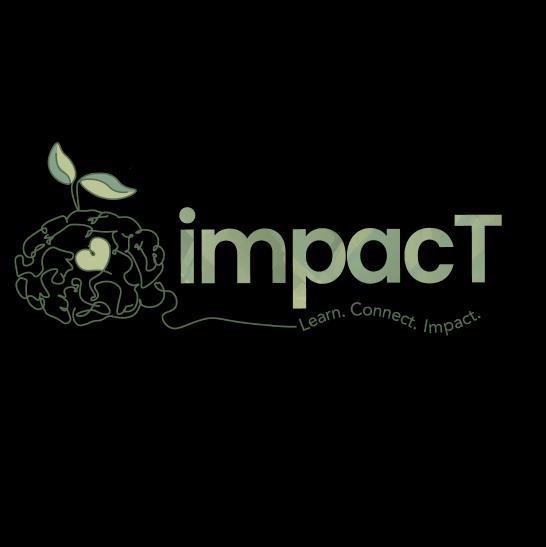
Over the past year, Project X has been spearheaded by the project director and supported by other EXCO members. This has established a robust foundation for the project, allowing the concept to be promoted to a wide array of stakeholders. Moreover, the team has expanded to include a new executive, so as to effectively run capacity-building workshops and to propel the project to its next phase. By harnessing members’ skills, Project X aims to continue making substantial strides in driving environmental policy change, solidifying impacT’s influence in NUS.
Sustainability target-setting in Southeast Asia is still in its nascency, a far cry from that of regions like the EU. Sourcing for suitable sustainability professionals with sufficiently deep expertise in frameworks like SBTi to provide insightful and reliable training material for participants has been a monumental challenge. Moreover, the numerous hurdles confronting Project X are exacerbated by the need for capacity-building of members, to develop their core competencies and build up a credible knowledge base, which is a necessary prerequisite to advance to subsequent stages of the project. Admittedly, these developments have created a cascading effect on timelines, leading to delays in overall project implementation.
While Project X recognises and acknowledges that our status as a student group partially impedes us from effecting significant policy change in the university, we are committed to continue raising the profile of impacT, both to the general NUS community and to its leaders. This stems from our belief that advocating for a visible and influential position within the university is critical in underscoring the cruciality of sustainability, ultimately engendering positive change on campus. In essence, engaging with the student community and its leaders will be crucial in cultivating a culture of sustainability within the university.

Guest speakers
Guest Speakers
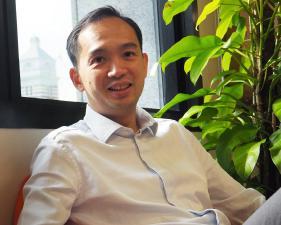
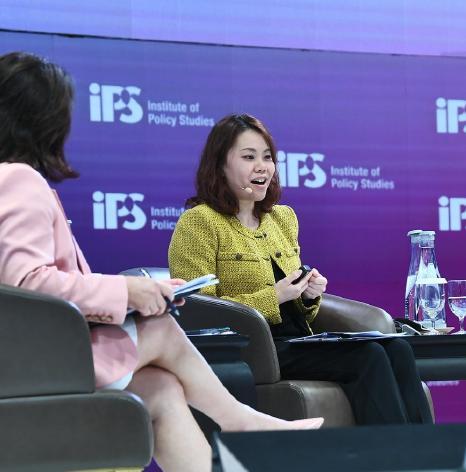
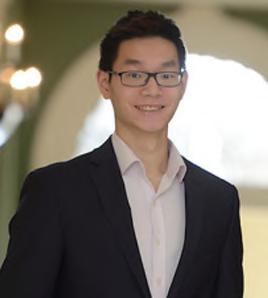
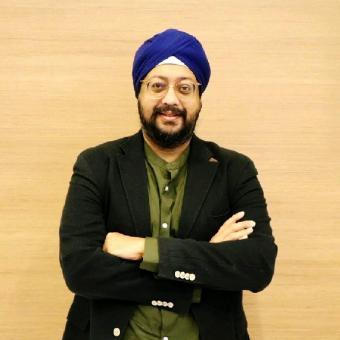
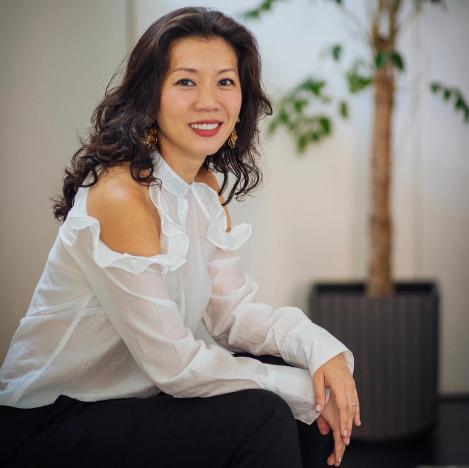
 Mr. Tan Kok Yam Chief Executive
SkillsFuture
Editor, Member
The Birthday Collective
The Birthday Collective
Mr. Chua Jun Yan
Teacher
Ministry of Education
Mr. Tan Kok Yam Chief Executive
SkillsFuture
Editor, Member
The Birthday Collective
The Birthday Collective
Mr. Chua Jun Yan
Teacher
Ministry of Education
Guest Speakers
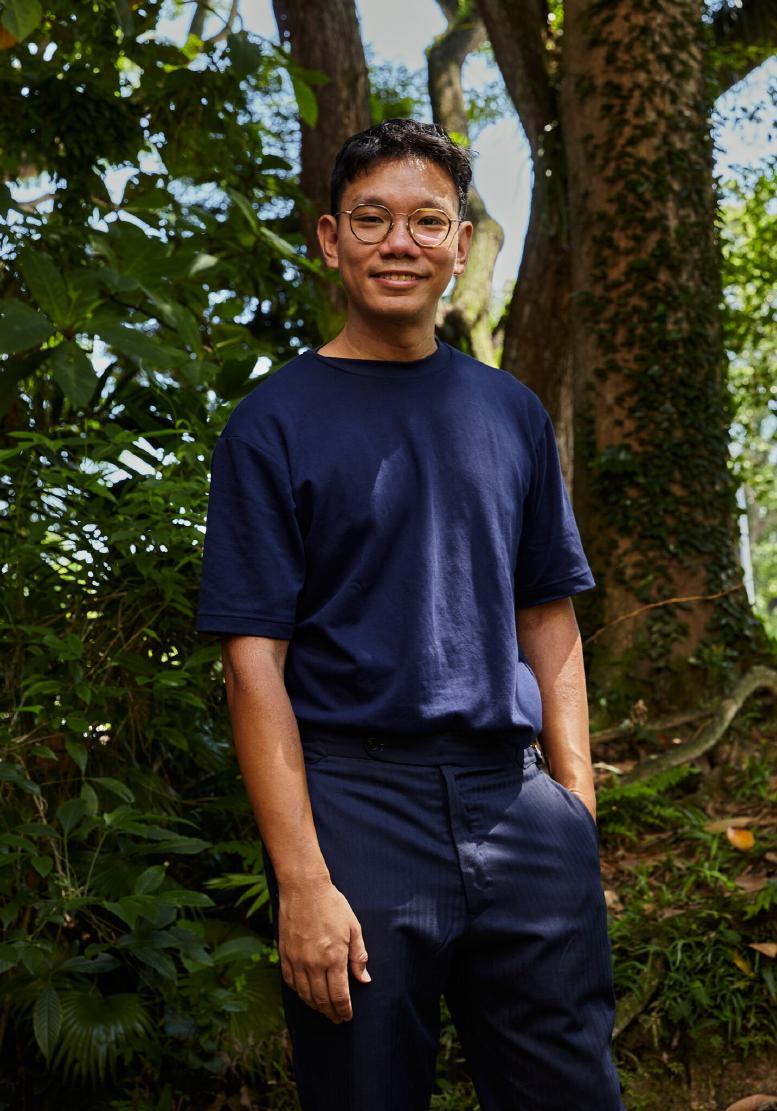
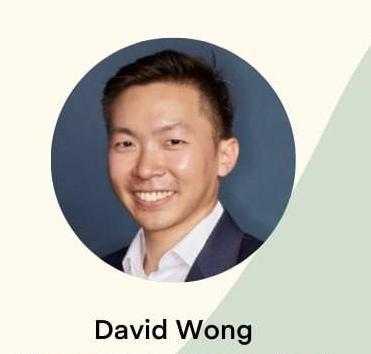
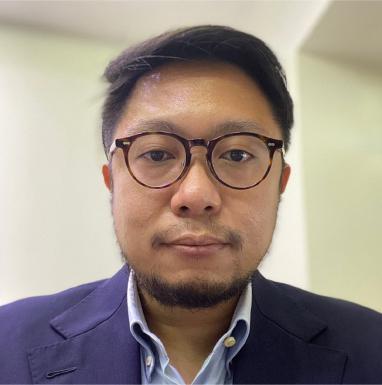
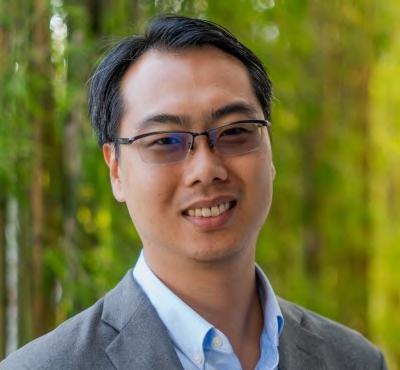

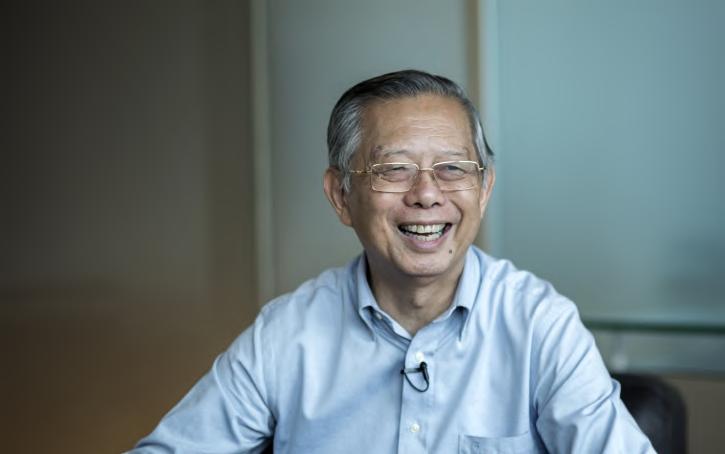 Mr. Lim Siong Guan Former President
GIC Group
Ms. Farah H. Sanwari
Mr. Eddie Choo
Futures Thinking Instructor
Lee Kuan Yew School of Public Policy Executive Education
Mr. Jian Wei Heng Director
National Climate Change Secretariat
Mr. David Wong Management Consultant
Bain & Company
Singapore Futures Fellow
Lee Kuan Yew School of Public Policy Executive Education
Mr. Lim Siong Guan Former President
GIC Group
Ms. Farah H. Sanwari
Mr. Eddie Choo
Futures Thinking Instructor
Lee Kuan Yew School of Public Policy Executive Education
Mr. Jian Wei Heng Director
National Climate Change Secretariat
Mr. David Wong Management Consultant
Bain & Company
Singapore Futures Fellow
Lee Kuan Yew School of Public Policy Executive Education
Guest Speakers
Climate Action

